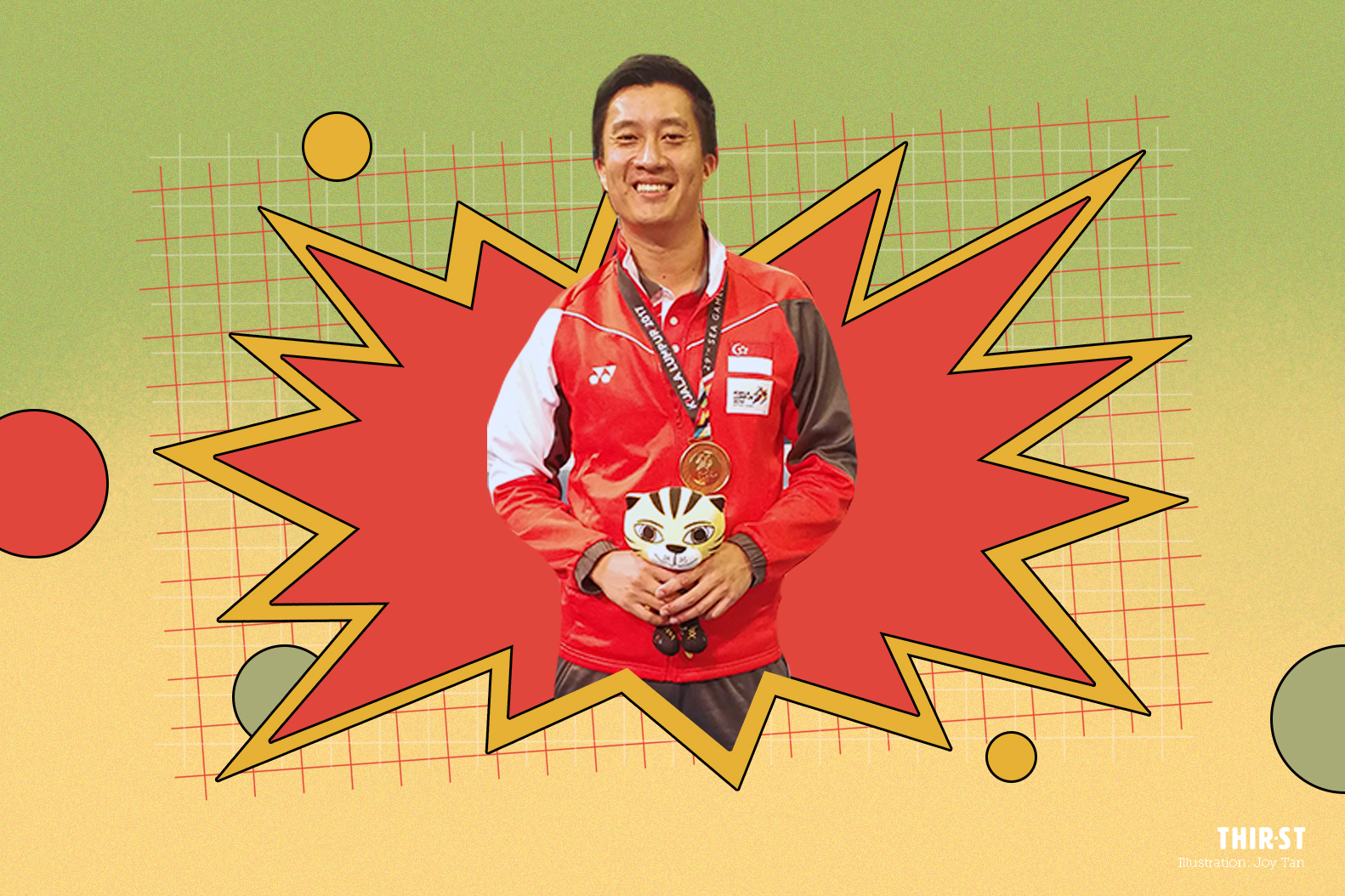Samuel Nee was 28 when he saw his life play out in five minutes.
He and his wife, Marianne, were recently married. They had no kids, no house, no car and no loans.
With no liabilities to tie him down, Samuel found himself standing at the edge of the precipice, looking into the nebulous mist of life’s valley.
It was the uncertainty of starting a new chapter in life that worried him. Call it a quarter-life crisis, if you would.
Up to that point, the paths that Samuel and Marianne had taken in life had not been too different from their peers: They went to junior college and university, had decent jobs and were middle-income earners.
“We were going down this typical Singaporean route,” Samuel thought out loud.
“In two years, we would get a promotion, have a car and buy a house. Maybe we would have a kid and get another promotion. And then, our kid would grow up and go to primary school…”
In other words, the five-minute Singaporean life. In just five minutes, he would be able to sum up his entire life journey.
“… you could go through life so distracted and not discover this abundant life that Jesus was talking about.”
Although Samuel had been a Christian for as long as he could remember, at that point in his life, he felt like there was still something missing.
He said: “From young I attended church every Sunday, joined a cell group, led a cell group, was a worship leader… I kept all those commandments of what it meant to be a good Christian.”
Empathising with the rich young man who asked Jesus what he needed to do to inherit eternal life (Mark 10:17), Samuel said he felt like, in the same way, Jesus was telling him to sell everything to follow Him.
He confessed: “One of the things that really scared me was that you could go through life so distracted and not discover this abundant life that Jesus was talking about.”
“The thief comes only to steal and kill and destroy. I came that they may have life and have it abundantly.” (John 10:10 ESV)
Convinced that he had to find out what this abundant life looked like for him, Samuel decided to begin his search before his five-minute life started.
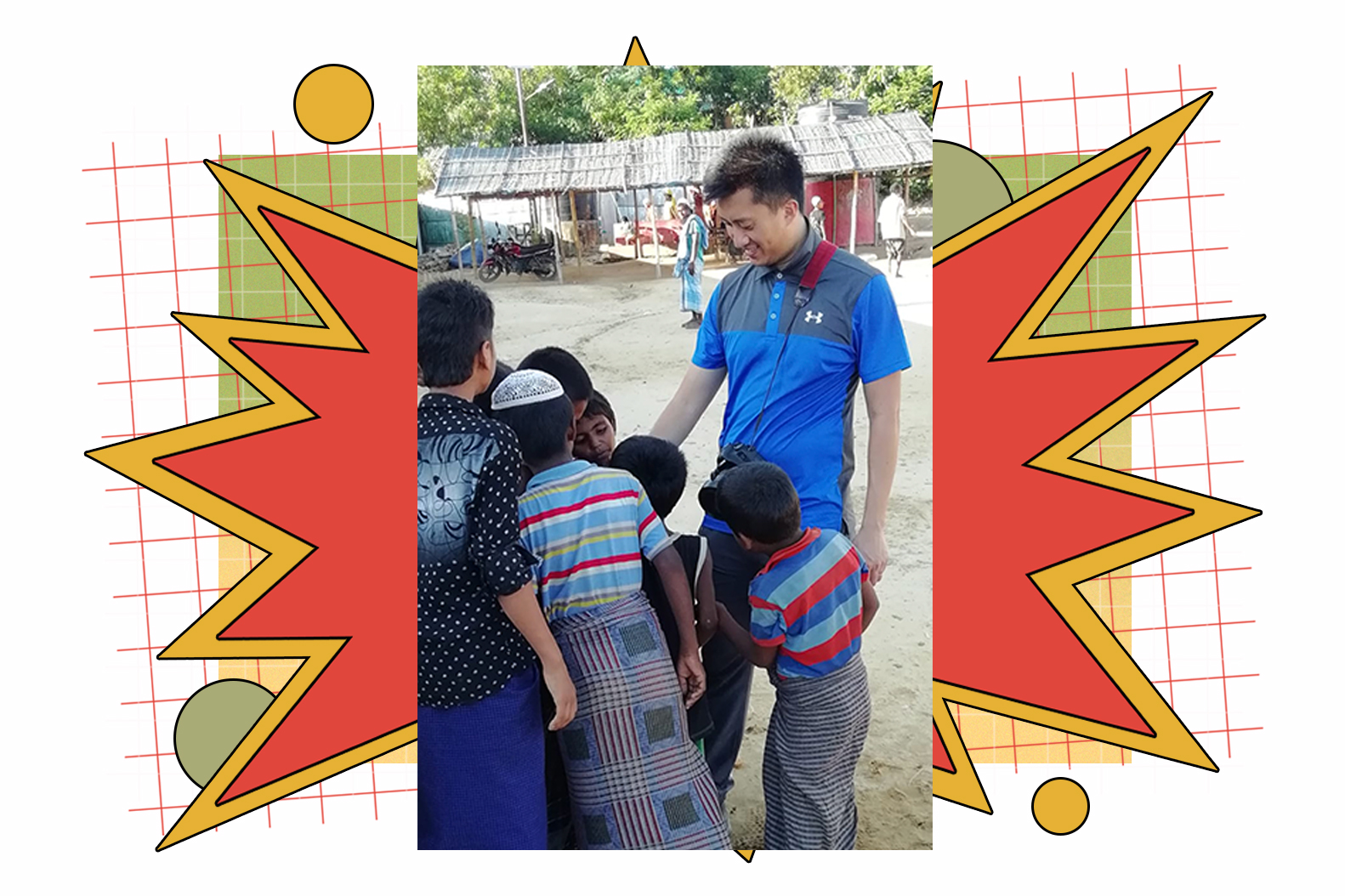
Leaving their jobs with the blessing of their parents, Samuel and Marianne took a step out into the unknown in 2013.
Spending time in Central Asia as part of their outreach phase during Youth With A Mission’s (YWAM) Discipleship Training School, it was there when their hearts were captured for missions.
While staying in a hostel, Samuel and his teammates got to know the hostel manager and told him about Jesus. That was the first time that Samuel saw, with his own eyes, how someone could be so joyful after hearing the Good News.
“Once you’ve tasted something good, you won’t go back.”
The trip also opened his eyes to many different people groups whom he didn’t even know existed. Samuel couldn’t believe that the hostel operator was so ready to receive the message of salvation, but nobody had told him about it before.
“He was just so full of joy”, he recounted, somewhat at a loss for words. “Like, it’s bright!”
Describing the joy as incomparable to anything he had ever seen, the experience must have really been something – especially coming from someone who went on to become a Southeast Asian Games medallist.
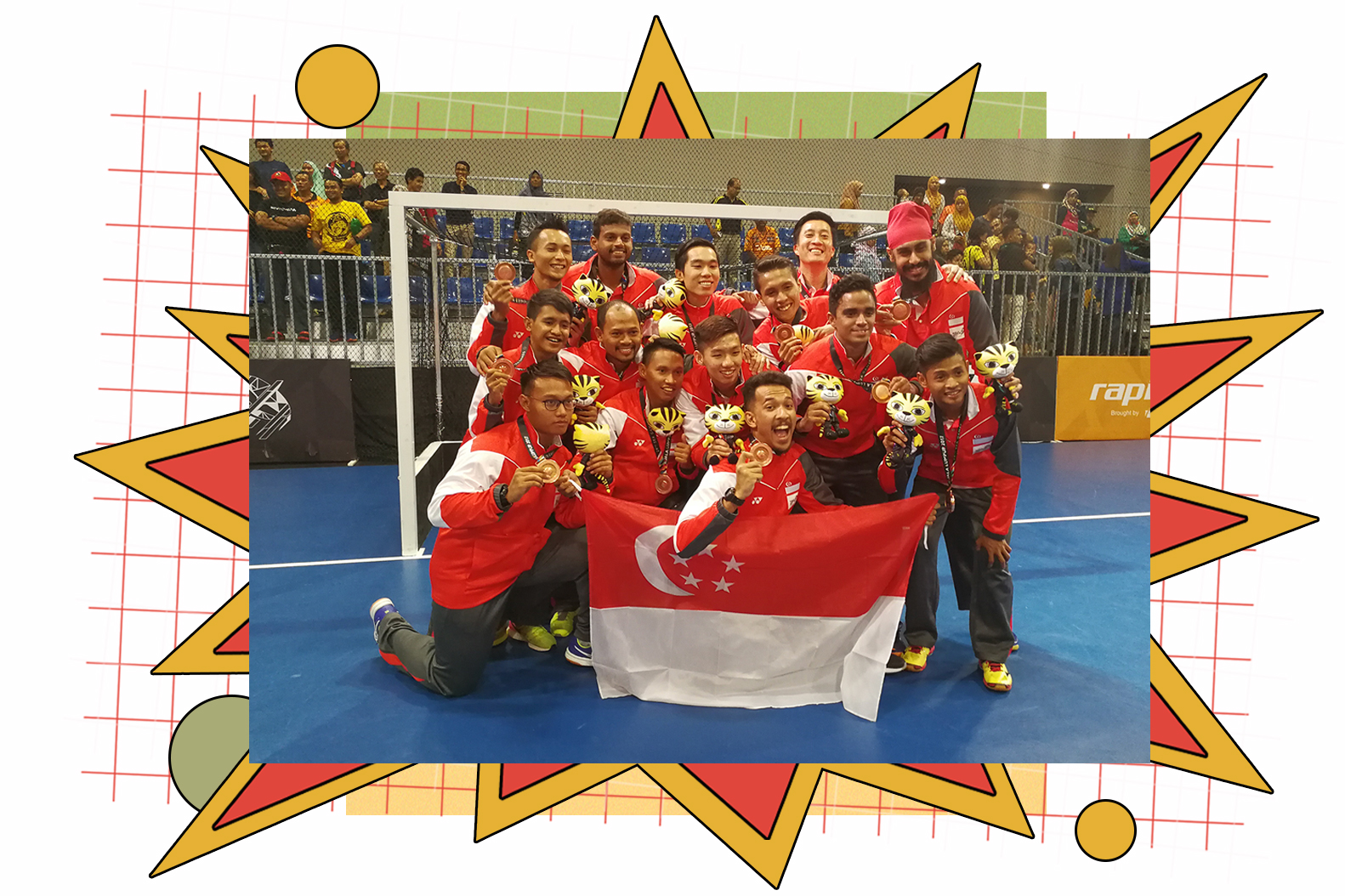
Though several years have gone by, Samuel could still remember the hard-fought hockey bronze medal match in 2017 when Team Singapore eventually emerged victorious.
By the end of 70 minutes, they were tied 1-1 with their opponents, forcing them to go into penalties. Samuel reminisced fondly how apprehension instantly turned into joy after the nail-biting shootout.
First, they had won the match. Second, they reached a podium finish. Third, they were bringing back a bronze medal for Singapore.
“But when I take this joy, and compare it to seeing a person receive Christ and knowing that it has an eternal impact on his life… it’s just unparalleled. It’s nothing this world could ever give,” said Samuel.
It’s been eight years since Samuel changed the course of his five-minute Singaporean life, but the 36-year-old is sure that he has found a life more abundant than the one he would have drifted into.
“Once you’ve tasted something good, you won’t go back,” Sam quipped.
“How to say ah? It’s like you’ve eaten the best chicken rice – Boon Tong Kee or whatever, or maybe it’s your mother’s chicken rice. You just wouldn’t go back to a normal chicken rice.”
Reflecting on how he and his wife decided to sign up for YWAM’s School of Biblical Studies followed by the School of Frontier Missions after returning from Central Asia, Samuel shared that their desire was to be further equipped in the Bible and missions.
And then in 2015, around two years from the time they went in search of the abundant life, the couple were blessed with their first child.
That’s when they decided to stay in Singapore to have their little girl and explore opportunities to serve locally.
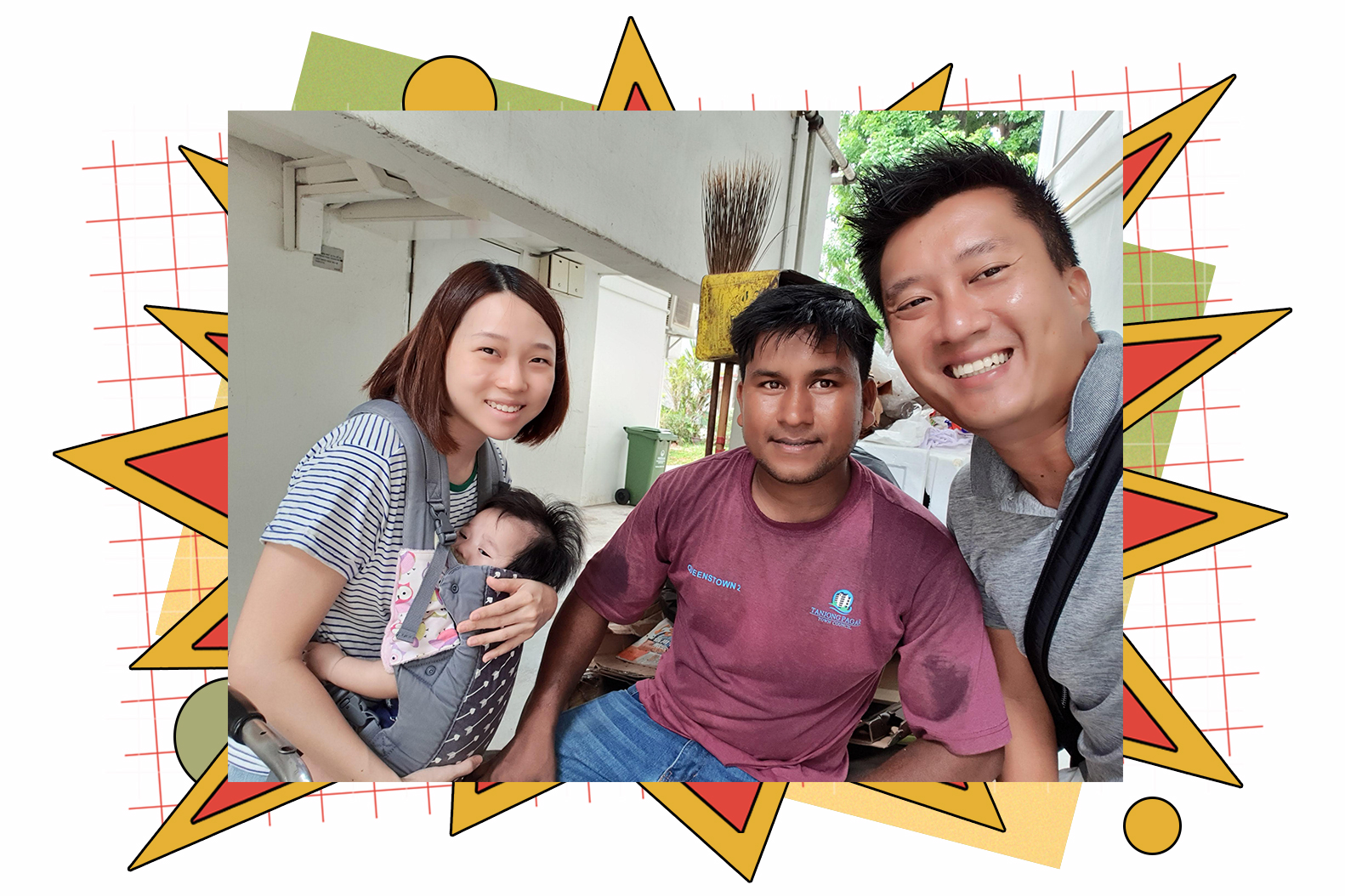
For two years, Samuel interned in his church before joining Operation Mobilisation (OM) Singapore as a Partnership Development Coordinator in 2017.
“I help to forge friendships and partnerships in the kingdom, so that the work and people doing the work get adequately resourced,” he said, adding that his role is to mobilise churches and individuals, specifically in the area of financial giving.
For instance, Samuel was involved in a meaningful project that raised resources for scores of refugees in Bangladesh after they were displaced from Myanmar.
He also engages with youth and young adults for missions. This is usually done through organising and speaking at workshops in various churches.
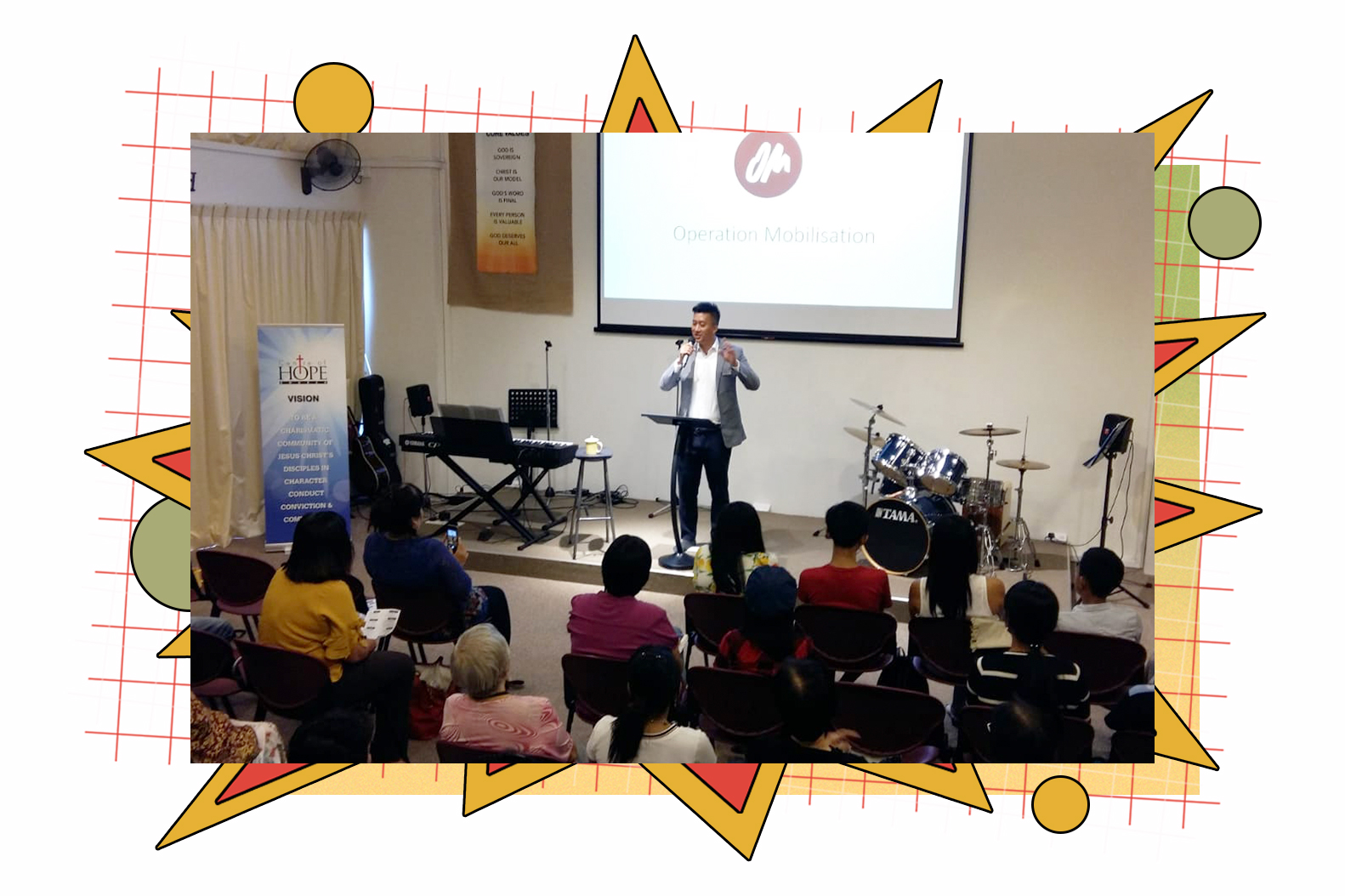
But you might be surprised to know that his role at OM only takes up half his time.
“As a tent-maker, I’m getting a lot of experience in the business side of things. And I still maintain a lot of marketplace currency, so this actually helps me when I connect with individuals and churches,” he elaborated.
Samuel added that the other benefit of running his own business is that he’s learning how to apply biblical principles in the workplace.
Despite being based in Singapore, Samuel firmly believes that cross-cultural missions doesn’t have to be something that can only be done overseas.
“You’re already given friends or even strangers that you come across daily. Surely you must know somebody in need,” he said.
Living out these convictions, Samuel shared how he unwittingly became known as “the friend of migrant workers”.
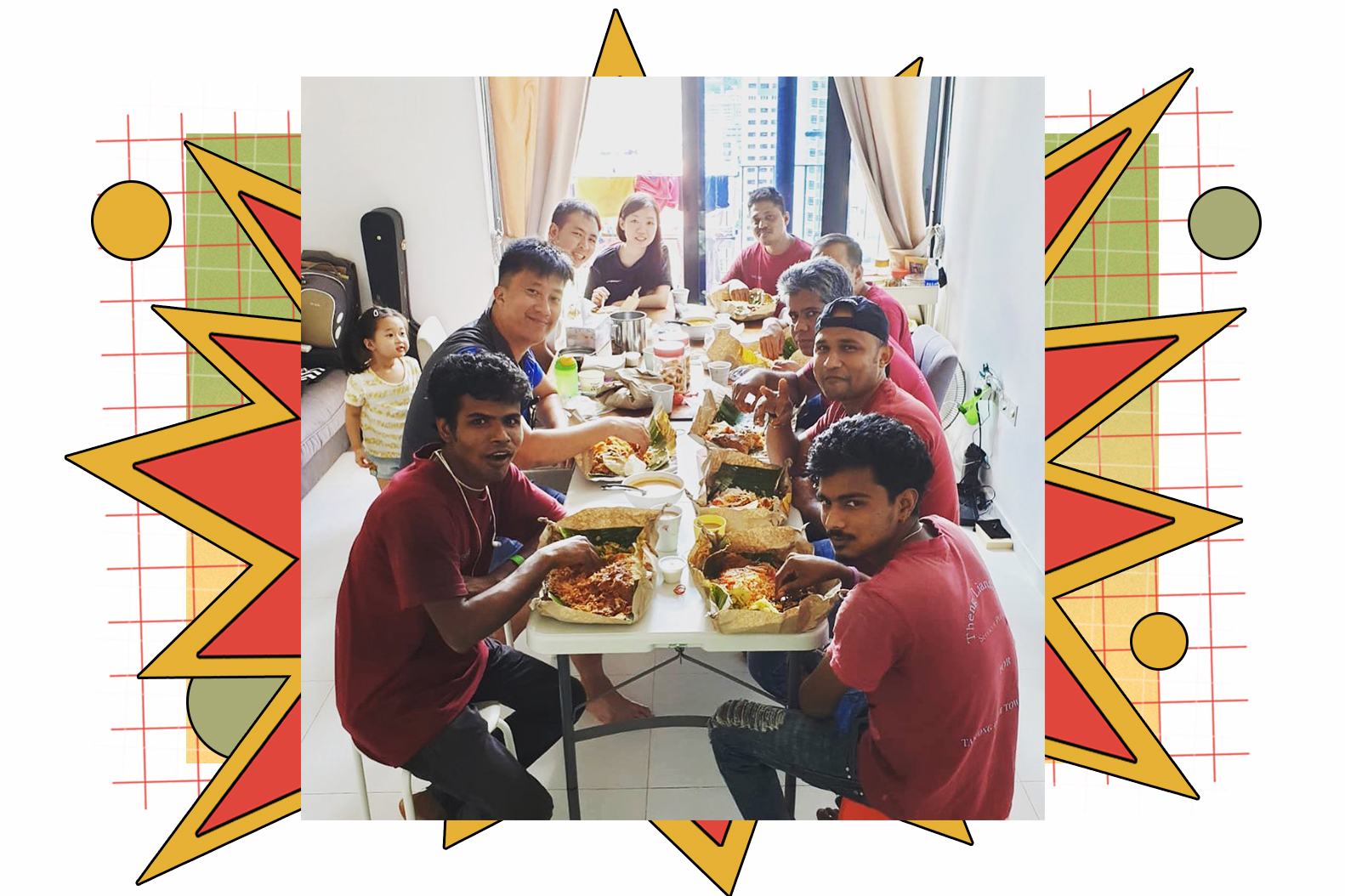
He recalled the first time he met his migrant friend, whom he referred to as baya (“brother” in Bengali). Baya was washing the floor outside his house when Samuel asked him to come in for a drink.
“No, no, no. I’m too dirty,” was the response. Nonetheless, Samuel continued to see baya around the neighbourhood and noticed that baya enjoyed talking to his children.
After a series of encounters, their friendship grew and Samuel tried to invite baya over for nasi briyani, telling him that he could bring some friends too. A month or two later, baya returned the favour and even gave Samuel a pot of Bangladeshi briyani he had cooked.
“That’s just the story of my good friend, who’s now probably married in Bangladesh,” he recounted. “For me, it felt very natural, but when people saw the picture we took together, they made such a hoo-ha.”
Explaining that his intention was simply to be someone whom his migrant friends could share their problems with or turn to for help, Samuel said: “I don’t recall a time that I ever shared the Gospel with them, but we had a space where they could come and eat, drink and rest, and feel comfortable. And we leave them with a prayer and bless them.”
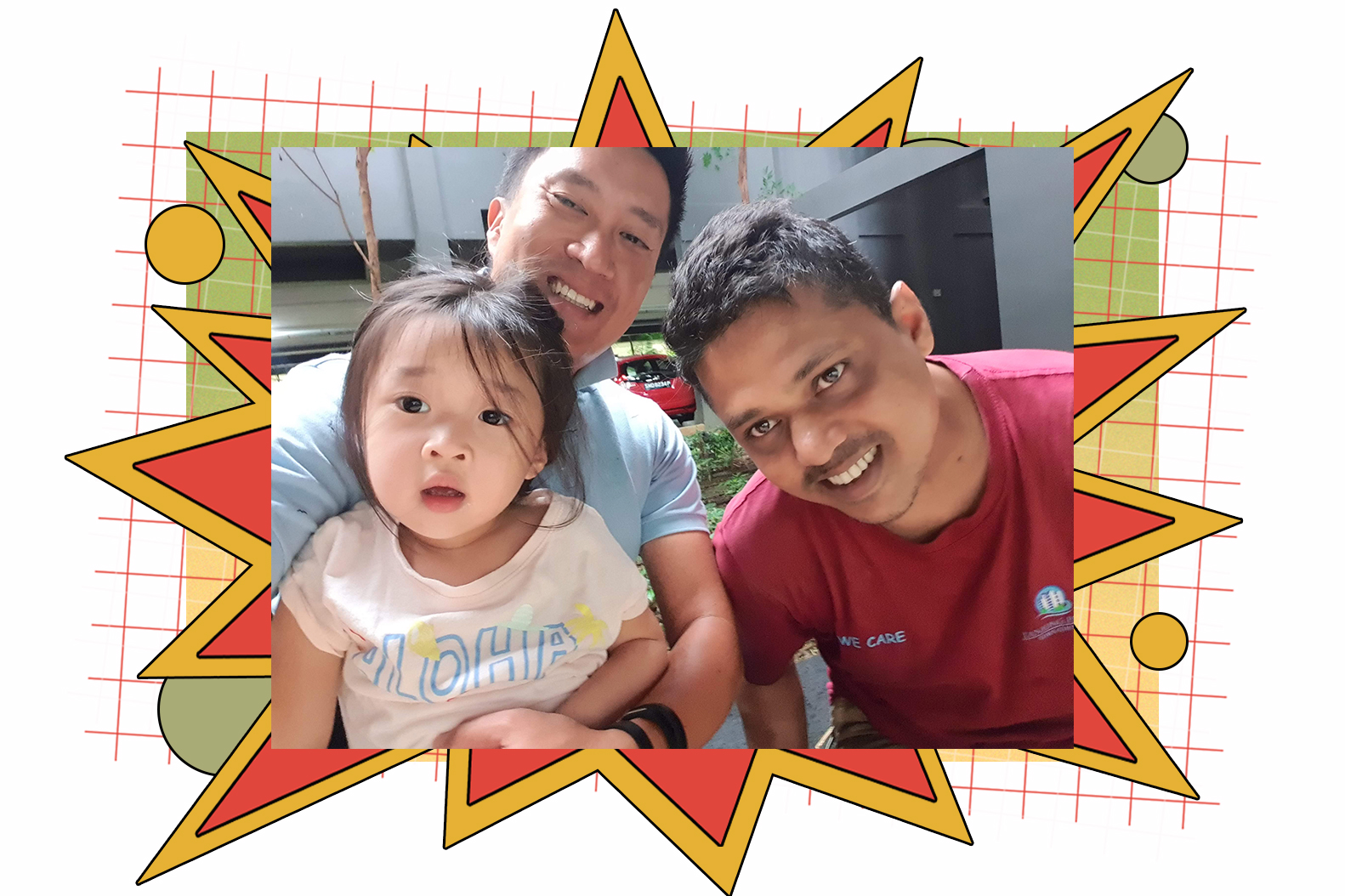
Sharing that it’s really not difficult to strike up a conversation with migrant workers we meet, Samuel pointed out that “kids are just a wonderful ice-breaker”.
His tip?
Whenever you see a migrant worker who shows interest in your child, try asking: “Do you have a son or a daughter?” And many times, they do. That’s why they are drawn towards kids, observed Samuel.
That’s when you can ask: “How’s your son or daughter? How old are they?”
“It’s these little acts where we try to minimise this gap or distance, and really treat them not as a migrant worker but as a migrant friend,” said Samuel.
When asked whether he had any advice for young people considering missions, Sam half-jokingly said, “Stop wasting time – just go out there and do something!”
Sharing this in between laughs, he concluded: “Firstly, realise that missions is not a place that you step into, or missions is not something that’s so out of reach or so scary. But wherever you are, realise that you are already in the mission.
“And secondly, because you’re on a mission, do something! Sometimes, we think so much and then we just leave it as a thought. But if you’ve ever thought of buying a drink for a migrant worker or befriending a stranger, just do it. I mean, what’s the worst that could happen?
“The worst that could happen is that you are labelled a weirdo. But we’re all weird in some way, so why not be a weirdo for Christ?”
This story is part of a special series produced in collaboration with OM Singapore, which is celebrating 40 years of God’s faithfulness in missions this year.
Missions is not something that’s so out of reach or so scary. Will you embark on this awesome journey of knowing Christ and making Him known?
Connect with OM at info.sg@om.org or explore mission opportunities by visiting the OM Singapore website or following them on Instagram and Facebook.
- How would you sum up your life in 5 minutes?
- What does living an “abundant life” mean to you?
- If you’re already on a mission, how can you make it count?
- What can you do to serve God where you are today?


